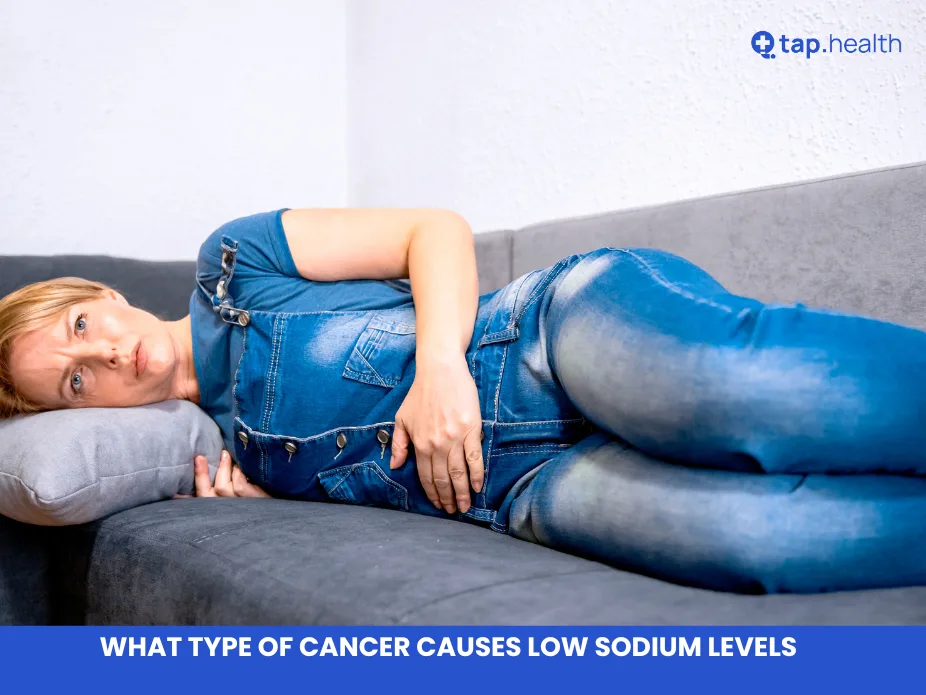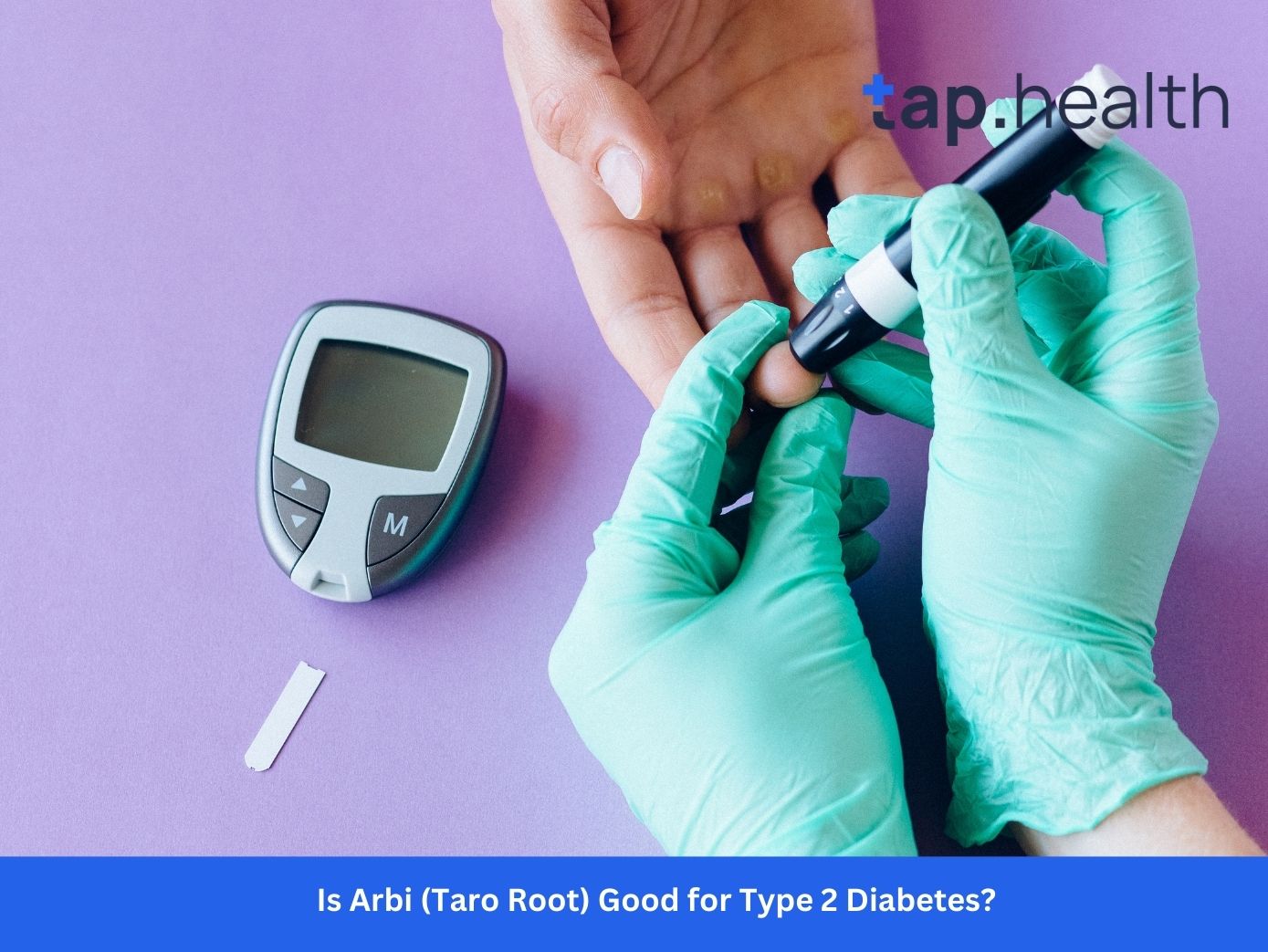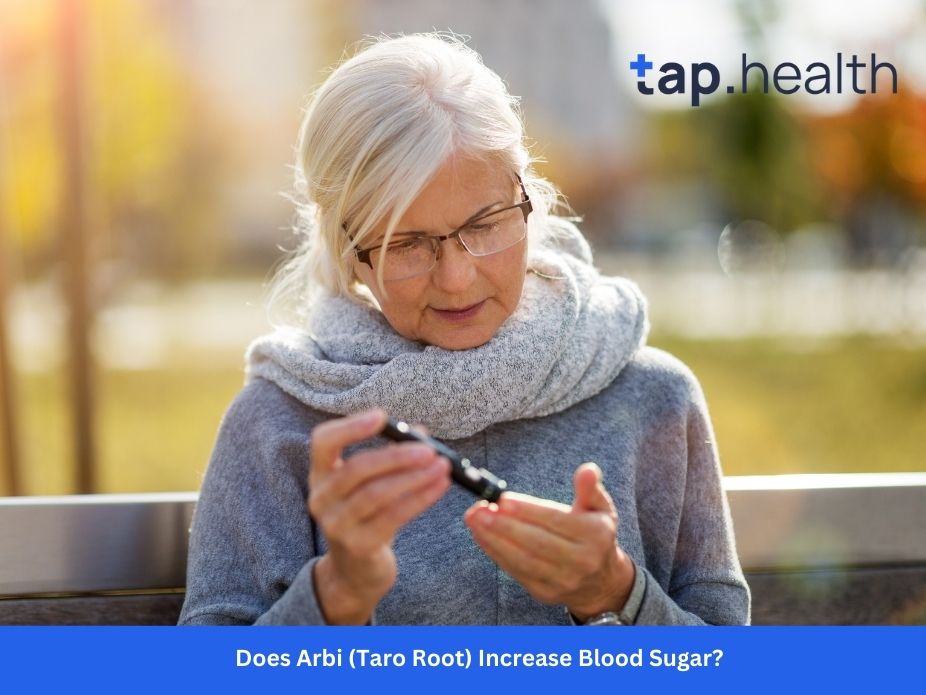Imagine waking up feeling unusually tired, with a pounding headache and a sense of confusion. What if these seemingly minor symptoms were trying to tell you something important about your health? Low sodium levels, also known as hyponatremia, can be a sign of various health issues, including certain types of cancer. Understanding the connection between cancer and sodium imbalance is crucial for early detection and effective treatment. In this blog, let’s dive into how certain cancers can lead to low sodium levels and why understanding this connection could be life-saving.
Introduction
Have you ever experienced symptoms like nausea, headache, confusion, or fatigue and wondered what could be causing them? Low sodium levels might be the culprit. While numerous factors can lead to hyponatremia, one significant but less discussed cause is cancer. Knowing which cancers are linked to low sodium can help you recognize potential warning signs and seek timely medical advice.
Understanding Low Sodium Levels (Hyponatremia)
Before diving into the types of cancer associated with low sodium levels, it’s essential to understand what hyponatremia is and why it matters.
What is Hyponatremia?
Hyponatremia occurs when the sodium concentration in your blood is abnormally low. Sodium is a vital electrolyte that helps regulate water balance in and around your cells. It plays a crucial role in nerve function, muscle contraction, and maintaining proper fluid balance. Think of sodium as a traffic controller in your body, keeping everything flowing smoothly—when it’s out of balance, traffic jams can happen, affecting your nerves, muscles, and even your brain.
Causes of Hyponatremia
Hyponatremia can result from various factors, including:
- Excessive Fluid Intake: Drinking too much water can dilute sodium levels.
- Medications: Certain medications, such as diuretics, antidepressants, and pain medications, can cause low sodium.
- Medical Conditions: Kidney disease, heart failure, liver disease, and endocrine disorders can lead to hyponatremia.
- Hormonal Imbalances: Conditions like the Syndrome of Inappropriate Antidiuretic Hormone (SIADH) can disrupt sodium balance.
Can Cancer Cause Low Sodium Levels?
Yes, certain types of cancer can lead to low sodium levels. The primary mechanism through which cancer causes hyponatremia is the Syndrome of Inappropriate Antidiuretic Hormone (SIADH). In SIADH, cancer cells produce excess antidiuretic hormone (ADH), which causes the kidneys to retain water, diluting the sodium in the bloodstream. Hearing that cancer can impact something as basic as sodium levels might feel overwhelming, but understanding why it happens can give you a sense of control over your health.
How Does Cancer Lead to Hyponatremia?
Cancer cells, particularly those from specific types of cancer, can produce ADH or ADH-like substances. This overproduction of ADH results in water retention and dilution of sodium, leading to hyponatremia. Additionally, cancer treatments like chemotherapy can also disrupt electrolyte balance, contributing to low sodium levels.
Types of Cancer Associated with Low Sodium Levels
Several types of cancer are more commonly linked to hyponatremia due to their association with SIADH or other mechanisms affecting sodium balance.
1. Small Cell Lung Cancer (SCLC)
For those battling Small Cell Lung Cancer, understanding its link to low sodium levels can feel daunting, but knowledge is the first step toward managing it. SCLC cells often produce ADH, leading to significant water retention and diluted sodium levels.
- Prevalence: Approximately 10-20% of all lung cancer cases are SCLC.
- Symptoms: Rapid weight loss, coughing, difficulty breathing, and hyponatremia symptoms like confusion and seizures.
2. Non-Small Cell Lung Cancer (NSCLC)
While less common than SCLC, Non-Small Cell Lung Cancer can also cause hyponatremia, though it’s not as strongly linked.
- Prevalence: NSCLC accounts for about 80-85% of all lung cancer cases.
- Symptoms: Similar to SCLC but generally progresses slower.
3. Pancreatic Cancer
Pancreatic Cancer can lead to hyponatremia through various mechanisms, including the secretion of ADH by tumour cells.
- Prevalence: Relatively rare but highly aggressive.
- Symptoms: Jaundice, abdominal pain, weight loss, and hyponatremia symptoms.
4. Prostate Cancer
Prostate Cancer is another type that can be associated with SIADH, especially in advanced stages.
- Prevalence: One of the most common cancers in men.
- Symptoms: Difficulty urinating, pelvic discomfort, and electrolyte imbalances.
5. Gastrointestinal Cancers
Certain Gastrointestinal Cancers, including stomach and colorectal cancers, can sometimes lead to hyponatremia, though it’s less common.
- Prevalence: Varies based on specific cancer type.
- Symptoms: Abdominal pain, changes in bowel habits, and electrolyte disturbances.
Symptoms of Hyponatremia in Cancer Patients
If you or a loved one are undergoing cancer treatment, noticing early warning signs like fatigue or confusion could make a big difference in seeking timely help. Common symptoms include:
- Mild Hyponatremia:
- Nausea
- Headache
- Fatigue
- Muscle weakness
- Severe Hyponatremia:
- Confusion
- Seizures
- Coma
- Respiratory arrest
Diagnosing Hyponatremia in Cancer Patients
Diagnosing hyponatremia involves a combination of medical history, physical examination, and specific laboratory tests.
Blood Tests
- Serum Sodium Level: Measures the concentration of sodium in the blood. Levels below 135 mEq/L indicate hyponatremia.
- Plasma Osmolality: Helps determine the underlying cause by assessing the concentration of solutes in the blood.
- Urine Osmolality and Sodium: Further tests to differentiate between different types of hyponatremia.
Additional Diagnostic Procedures
- Imaging Studies: CT scans or MRIs may be used to identify the presence of tumours associated with SIADH.
- Endoscopy: For gastrointestinal cancers, an endoscopy might be necessary to visualize and biopsy tumours.
Treatment of Hyponatremia in Cancer Patients
Managing low sodium levels in cancer patients involves addressing both the electrolyte imbalance and the underlying cancer.
Correcting Sodium Levels
- Fluid Restriction: Limiting fluid intake can help increase sodium concentration.
- Medications: Vaptans (ADH receptor antagonists) may be prescribed to help manage SIADH.
- Hypertonic Saline: In severe cases, intravenous saline solutions may be necessary to restore sodium levels.
Treating the Underlying Cancer
- Chemotherapy: Targeting cancer cells can reduce the production of ADH.
- Radiation Therapy: Helps shrink tumors causing SIADH.
- Surgery: Removing tumours may resolve the electrolyte imbalance.
Real-life Scenarios
Understanding how low sodium levels affect real lives can provide better insights into the importance of early detection and treatment. Let’s explore some stories from India.
Real-life Scenarios
Scenario 1: Raj’s Battle with Small Cell Lung Cancer
Raj, a 60-year-old businessman from Mumbai, was diagnosed with small-cell lung cancer. Shortly after his diagnosis, he began experiencing severe fatigue, confusion, and muscle weakness.
- Outcome: Blood tests revealed hyponatremia. Further investigation confirmed that his cancer was producing excess ADH, leading to low sodium levels. Raj’s medical team worked closely with him to balance his sodium levels while managing his cancer, helping him regain his energy and focus on what mattered most—spending time with his family, which improved his symptoms and overall health.
Scenario 2: Anjali’s Experience with Pancreatic Cancer
Anjali, a 50-year-old teacher from Delhi, was diagnosed with pancreatic cancer. During her treatment, she noticed persistent headaches and dizziness.
- Outcome: A blood test showed low sodium levels. Her medical team identified that her tumour was contributing to hyponatremia. Anjali underwent a combination of chemotherapy and fluid management, which helped stabilize her sodium levels and manage her cancer more effectively.
These scenarios highlight the critical role of blood tests in detecting and managing hyponatremia in cancer patients, leading to timely and effective interventions.
Expert Contributions
Dr Priya Sharma, a renowned haematologist at the All India Institute of Medical Sciences (AIIMS) in New Delhi, shares her insights:
“Regular blood tests aren’t just routine—they’re a powerful tool in catching and managing issues like hyponatremia early, which can dramatically improve outcomes for patients.”
For more expert insights, visit the AIIMS Official Website.
Recommendations Grounded in Proven Research and Facts
Taking small steps, like staying hydrated without overdoing it, or scheduling regular check-ups, can make a big difference. It’s about being kind to your body and staying proactive about your health. Here are evidence-based recommendations to help you stay informed and reduce your risk.
1. Regular Health Check-ups
Routine medical examinations can help detect abnormalities early. If you have risk factors for stomach cancer or other cancers associated with hyponatremia, more frequent screenings may be necessary.
2. Monitor Symptoms
Be aware of symptoms related to both cancer and hyponatremia, such as:
- Persistent fatigue and weakness
- Unexplained weight loss
- Nausea and vomiting
- Confusion and difficulty concentrating
If you experience these symptoms, consult a healthcare professional promptly.
3. Maintain a Healthy Lifestyle
We know life gets busy, but even small changes—like adding an extra serving of vegetables to your meals or taking a 10-minute walk—can add up to a healthier you.
- Balanced Diet: Consume a diet rich in fruits, vegetables, whole grains, and lean proteins.
- Regular Exercise: Engage in at least 30 minutes of moderate exercise most days of the week.
- Avoid Smoking and Limit Alcohol: These habits are linked to an increased risk of various cancers, including stomach cancer.
- Manage Stress: Practices like yoga and meditation can support overall health.
4. Manage Helicobacter pylori Infection
If you have an H. pylori infection, seek treatment to reduce the risk of developing stomach cancer. Antibiotics can effectively eradicate the bacteria.
5. Genetic Counseling
If you have a family history of blood cancers or other hereditary conditions, consider genetic counselling. Understanding your genetic risk can help in taking preventive measures and planning regular screenings.
6. Stay Informed
Keep up-to-date with the latest research and guidelines on cancer detection and prevention. Reliable sources like the American Cancer Society and the National Cancer Institute provide valuable information.
7. Seek Professional Medical Advice
Always consult healthcare professionals for personalized advice and treatment plans. They can guide you through the necessary diagnostic procedures and recommend appropriate interventions based on your health status.
8. Support Systems
Having a strong support system can help you manage the emotional and physical challenges of cancer treatment. Connect with support groups, family, and healthcare professionals for assistance.
Factual and Reliable Information
The information provided in this blog is based on reputable sources to ensure accuracy and reliability. Some of these sources include:
These organizations offer comprehensive information on blood cancer, its causes, hereditary factors, and prevention strategies.
FAQ on What Type of Cancer Causes Low Sodium Levels?
What type of cancer causes low sodium levels?
Small Cell Lung Cancer (SCLC) is the most common type associated with low sodium levels due to its tendency to produce excess antidiuretic hormone (ADH), leading to hyponatremia.
How does cancer cause low sodium levels?
Cancer can cause low sodium levels primarily through the production of antidiuretic hormone (ADH) or ADH-like substances, which leads to water retention and dilution of sodium in the blood.
Can all cancers cause low sodium levels?
No, not all cancers cause low sodium levels. It is primarily associated with specific types like small cell lung cancer, pancreatic cancer, prostate cancer, and certain gastrointestinal cancers.
What are the symptoms of low sodium levels in cancer patients?
Symptoms of hyponatremia include fatigue, muscle weakness, nausea, headache, confusion, seizures, and in severe cases, coma.
How is low sodium diagnosed in cancer patients?
Low sodium is diagnosed through blood tests that measure serum sodium levels. Additional tests like plasma osmolality and urine sodium levels help determine the underlying cause.
Can treating cancer resolve low sodium levels?
Absolutely! The good news is that when cancer is treated effectively, sodium levels often improve too. It’s one of the ways your body shows it’s on the mend.
Should I get screened for low sodium if I have cancer?
If you have cancer, especially types known to be associated with hyponatremia, regular blood tests to monitor sodium levels are recommended as part of your overall treatment plan.
What treatments are available for low sodium caused by cancer?
Treatments include fluid restriction, medications like vaptans to block ADH, and in severe cases, intravenous saline solutions. Treating the underlying cancer is also crucial.
Can lifestyle changes help manage low sodium levels in cancer patients?
Yes, maintaining a balanced diet, staying hydrated appropriately, and following your healthcare provider’s recommendations can help manage sodium levels effectively.
Is hyponatremia reversible in cancer patients?
Yes, hyponatremia can be reversible with appropriate treatment targeting both the electrolyte imbalance and the underlying cancer.
How common is hyponatremia in cancer patients?
Hyponatremia is relatively common in cancer patients, particularly those with small-cell lung cancer. It occurs in about 15-30% of hospitalized cancer patients.
Can hyponatremia affect cancer treatment outcomes?
Yes, severe hyponatremia can complicate cancer treatment, leading to increased morbidity and potentially affecting treatment efficacy and patient recovery.
What should I do if I suspect I have low sodium levels?
If you experience symptoms of hyponatremia, such as persistent fatigue, confusion, or muscle weakness, contact your healthcare provider immediately for evaluation and appropriate management.
Are there any long-term effects of low sodium levels?
Chronic hyponatremia can lead to neurological issues, including cognitive impairment and increased risk of falls and fractures. Prompt treatment is essential to prevent long-term complications.
Understanding the relationship between cancer and low sodium levels is essential for proactive health management. While certain types of cancer, like small cell lung cancer, are more commonly associated with hyponatremia, recognizing the symptoms and seeking timely medical advice can lead to better treatment outcomes. Regular health check-ups, maintaining a healthy lifestyle, and staying informed through reliable sources are key steps in managing your health effectively. Always consult with healthcare professionals to tailor the best strategies for your individual needs and ensure early detection and effective treatment of both cancer and its associated complications.
Read this : How to Interpret RBS Results: Understanding RBS Value



